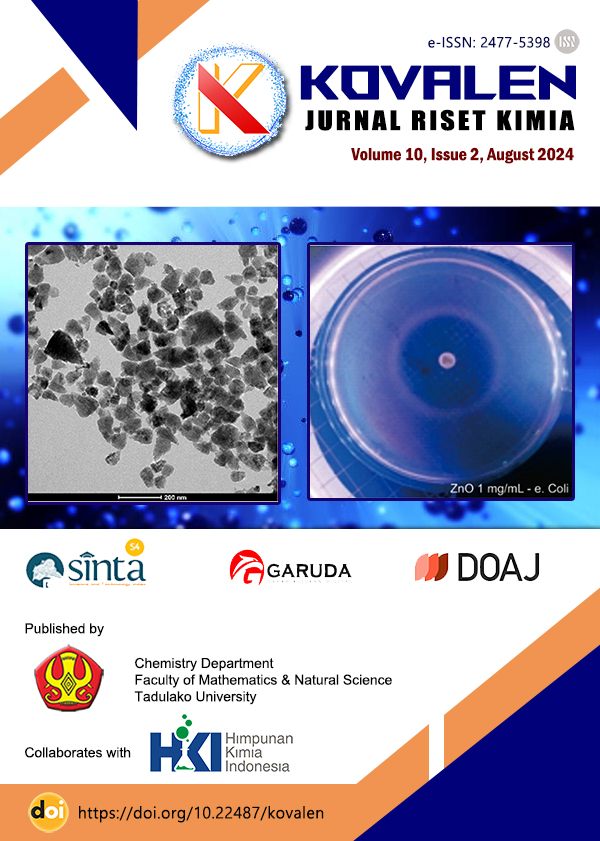Main Article Content
Abstract
Water pollution from settlements, agriculture, and industry is a significant issue, as it introduces pollutants like heavy metals into water bodies, harming both humans and aquatic ecosystems. Phytoremediation is a cost-effective, eco-friendly technology for reducing heavy metals in water bodies. This study aimed to assess Azolla filiculoides plants' ability to absorb heavy metals nickel and mercury. The plants were grown in a hydroponic solution contaminated with 0.25 ppm of nickel and 0.5 ppm of mercury. The growth of the plants was measured based on their wet and dry weight, and the nickel and mercury content in the plant tissue was analyzed using Atomic Absorption Spectrophotometry (AAS). The study found that the growth of A. filiculoides plants was unaffected by the concentration of either nickel or mercury. The amount of nickel absorbed by the plants was 0 µg/g plant dry weight, while for mercury, it was 1654.82 µg/g. Based on the results, A. filiculoides plant is more promising for use as a phytoremediation agent for water bodies contaminated with mercury heavy metals rather than nickel heavy metals.

